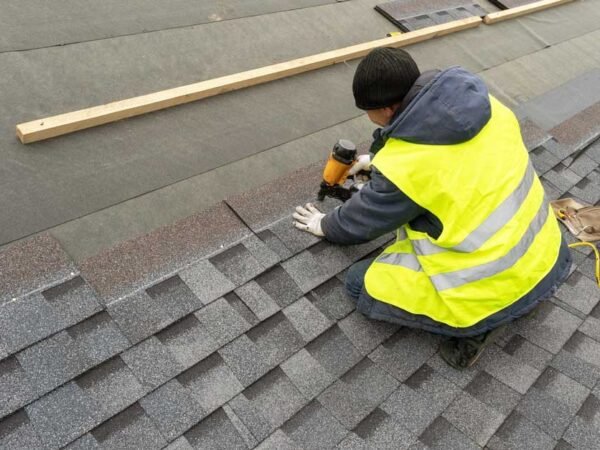The solar energy industry has grown rapidly over the past decade, offering homeowners and businesses an opportunity to embrace renewable energy and reduce long-term costs. Yet, as demand rises, so does the importance of consumer protection and trust. According to Central Florida Property Management Team, customers are making significant financial investments when installing solar systems, which means they need reassurance that the process is transparent, fair, and reliable. Building and maintaining trust goes beyond technical skills—it requires clear communication, integrity, and accountability. We will explore how solar installers can navigate consumer protection challenges while fostering confidence in the communities they serve.
Key Strategies for Consumer Protection and Building Trust
- Transparent Communication Throughout the Process
Clear communication is one of the strongest foundations for trust in any service-based industry, and in solar installation, it holds even greater weight. Customers often approach solar with limited knowledge, and solar installers in Sacramento must bridge this gap by explaining not only the technology but also the financial and contractual aspects. Transparency means being upfront about costs, timelines, warranties, and the realistic expectations of performance.
For example, an installer who thoroughly explains how energy output fluctuates with weather conditions or how maintenance may be required over time shows customers that they are committed to honesty rather than quick sales. Providing detailed written agreements, responding promptly to inquiries, and avoiding vague promises ensure customers feel informed and valued. When communication remains consistent before, during, and after installation, trust grows naturally because customers recognize the installer’s willingness to stand by their word.
- Prioritizing Clear Contracts and Fair Practices
Contracts are the backbone of consumer protection, and solar installers must ensure that every agreement is easy to understand and free of hidden clauses. A poorly written or confusing contract can create mistrust even before the installation begins. Installers should take time to walk customers through the document, explaining each section in plain language, especially regarding costs, warranties, service responsibilities, and financing terms. Offering flexible payment options without pressuring customers also plays a major role in building confidence.
Additionally, fair practices such as honoring initial price quotes, avoiding last-minute fees, and adhering to promised schedules strengthen relationships with clients. By keeping contracts simple yet thorough and avoiding misleading tactics, solar companies show they prioritize fairness and consumer well-being, which in turn secures their reputation as trustworthy providers of renewable energy solutions.
- Educating Customers About Long-Term Value
Trust is not only built during the purchase but also through a customer’s long-term experience with their solar system. Educating customers about the ongoing benefits and responsibilities associated with solar energy helps prevent misunderstandings down the line. Installers can provide guides on system maintenance, instructions for monitoring energy output, and tips for maximizing efficiency. When customers clearly understand what their system can and cannot do, they are less likely to feel misled.
Furthermore, offering workshops, online resources, or post-installation support programs demonstrates an installer’s commitment to ongoing value beyond the initial sale. Educated customers often become advocates for solar energy, sharing their positive experiences with others and creating a cycle of trust that benefits both consumers and installers. By focusing on long-term education rather than short-term gains, solar installers can cement their role as reliable partners in sustainable living.
- Maintaining Strong After-Sales Support
One of the most overlooked yet critical aspects of consumer protection in solar installation is after-sales support. Customers need assurance that they won’t be abandoned once the panels are on their roof. Reliable after-sales support includes honoring warranties, providing timely repairs, and being accessible for questions or troubleshooting. When a company stands behind its products and services long after the initial installation, customers feel secure in their investment.
Offering regular maintenance check-ins, performance evaluations, and responsive customer service hotlines are simple yet powerful ways to demonstrate reliability. Trust is often solidified during moments when issues arise—if an installer resolves problems quickly and with accountability, it reinforces the consumer’s belief that they made the right choice. Therefore, maintaining strong after-sales service not only protects consumers but also strengthens brand loyalty and long-term customer satisfaction.
- Building Community Relationships and Reputation
Trust extends beyond individual projects and into the broader community. Solar installers who engage with local communities through educational programs, partnerships with schools or businesses, and active involvement in sustainability initiatives strengthen their reputation. Positive word-of-mouth referrals and strong online reviews are often more persuasive to potential customers than advertising alone. By consistently demonstrating a commitment to ethical practices and community well-being, installers position themselves as trustworthy contributors to local growth.
Building partnerships with organizations that promote renewable energy or offering community discounts for group installations are also effective ways to establish goodwill. Over time, such community-focused efforts make customers more confident in choosing a solar installer, knowing they are supporting a company invested not only in profit but in collective progress toward a cleaner, more sustainable future.
The path to building and maintaining trust in the solar industry is shaped by a combination of transparency, education, accountability, and adaptability. Solar installers play a pivotal role in ensuring consumer protection by clearly communicating expectations, offering fair contracts, supporting customers after installation, and keeping pace with evolving regulations. Beyond technical proficiency, trust is earned through consistent actions that show customers their needs and concerns are valued. In a field where renewable energy is more than just technology but also a movement toward sustainability, protecting consumers and cultivating trust ensures growth for both the industry and the communities it serves.













